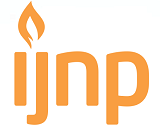PENGETAHUAN DAN SIKAP MASYARAKAT TERKAIT KUSTA DAN PERLAKUAN DISKRIMINASI PADA PENDERITA KUSTA : STUDI KASUS DI KOTA TARAKAN
DOI:
https://doi.org/10.18196/ijnp.v2i2.2081Abstract
Background: Indonesia is one of the world’s biggest contributor to leprosy. A long and convoluted chain of transmission is complicating factor in the leprosy control program. Physical disabilities as an impact of leprosy causes excessive fear in the community. Negative stigma and leprophobia resulted in lepers often being subjected to discrimination. The low level of public knowledge about leprosy lead to negative attitude of society is thought to be a discrimination trigger.
Objective: The study aimed to identify the level of public knowledge about leprosy, public attitudes to leprosy patients, and to analyze the relationship between knowledge and attitudes towards discrimination.
Methods: This is a case study conducted in the Tarakan city utilising cross sectional design. A sample size of 227 respondents aged from 18-60 years were taken by purposive sampling technique. The research instrument in the form of a structured questionnaire with a Cronbach’s Alpha of 0.81. Analysis of the relationship between knowledge and attitudes towards discriminated on leprosy patients were tested using the Mann-Whitney.
Results: this study identifi ed the level of public knowledge about leprosy is still low; negative attitudes; and the tendency of discrimination in patients with leprosy. Analysis of the relationship between variables which produces a signifi cance level of p = 0.000.
Conclussion: there is a signifi cant correlation between public knowledge about leprocy and public attitudes to leprosy patients against discrimination in patients with leprosy.
Keywords: Knowledge, Attitude, Leprosy, Discrimination.References
Allport C, 2011. Health-Seeking Behavior of Leprosy Patients. Indian Journal of Leprosy, National Library of Medicine, USA.
Aziz, Widodo & Febismanto, T, 2012. Pengetahuan, sikap dan perilaku kiai terkait kusta, Komnas HAM, Jakarta.
Azwar S, 2013. Sikap manusia teori dan pengukurannya, Pustaka Delapratasa, Yogyakarta.
Harahap M. 2010. Ilmu Penyakit Kulit, Hipokrates, Jakarta.
Ilias MI, 1990. Penanganan Masalah Kusta Secara Terpadu, Laboratorium/UPF Ilmu Penyakit Kulit dan Kelamin Fakultas Kedokteran Universitas Airlangga/RSU Dr. Soetomo, Surabaya.
Kementerian Kesehatan Republik Indonesia, 2015. Data dan Informasi Kesehatan Tahun 2014 (Profi l Kesehatan Indonesia), Kemkes RI, Jakarta.
Lesmana S, 2014. Hubungan Pengetahuan dengan persepsi masyarakat terhadap penderita kusta, htt p://library.uq.edu.au/ kajian-pengetahuan-persepsi/.
Komisi Nasional Hak Asasi Manusia, 2011. Tingkat penikmatan Hak Asasi Manusia dan pemenuhan prinsip nondiskriminasi terhadap penderita, orang yang pernah mengalami kusta dan anggota keluarganya, Komnas HAM, Jakarta.
Notoatmodjo S, 2010. Metodologi penelitian kesehatan edisi revisi, Rineka, Jakarta.
Setiaji P & Lestari P, 2013. Hubungan pengetahuan dengan dukungan masyarakat terhadap penderita penyakit kusta di wilayah kerja Puskesmas Bringin Kabupaten Semarang, Kepustakaan Undip, Semarang.
Soetarno R, 1996. Psikologi sosial, Kanisius, Yogyakarta.
Sulidah, 2005. Pengaruh penyuluhan tentang penyakit kusta terhadap perubahan sikap masyarakat pada penderita kusta, Perpustakaan Universitas Borneo, Tarakan.
Thomas et al, 2008. Aspek sosial dalam promosi kesehatan. Gajah Mada University Press, Yogyakarta.
Tosac DH, 2006. All about leprocy. Health, Culture
and Society. Diakses tanggal 19 Juli 2015.
Issue
Section
License
License
Articles published in the IJNP (Indonesian Journal of Nursing Practices) are licensed under a Attribution 4.0 International (CC BY 4.0) license. You are free to:
- Share — copy and redistribute the material in any medium or format.
- Adapt — remix, transform, and build upon the material for any purpose, even commercially.
This license is acceptable for Free Cultural Works. The licensor cannot revoke these freedoms as long as you follow the license terms. Under the following terms:
Attribution — You must give appropriate credit, provide a link to the license, and indicate if changes were made. You may do so in any reasonable manner, but not in any way that suggests the licensor endorses you or your use.
- No additional restrictions — You may not apply legal terms or technological measures that legally restrict others from doing anything the license permits.
Copyright
Authors who publish with IJNP (Indonesian Journal of Nursing Practices) agree to the following terms:
- Authors retain copyright and grant IJNP (Indonesian Journal of Nursing Practices) the right of first publication with the work simultaneously licensed under an Attribution 4.0 International (CC BY 4.0) that allows others to remix, adapt and build upon the work with an acknowledgment of the work's authorship and of the initial publication in IJNP (Indonesian Journal of Nursing Practices).
- Authors are permitted to copy and redistribute the journal's published version of the work (e.g., post it to an institutional repository or publish it in a book), with an acknowledgment of its initial publication in IJNP (Indonesian Journal of Nursing Practices).














